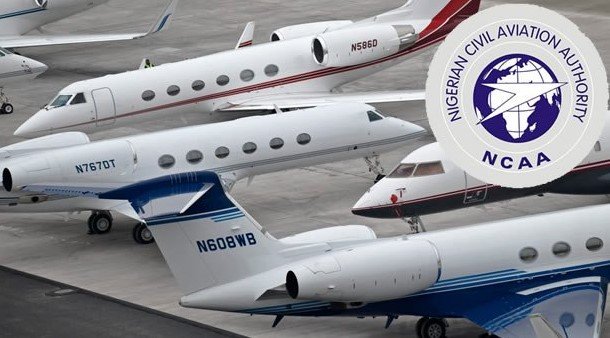
Nigerian Civil Aviation Authority (NCAA) is the regulatory body for aviation in Nigeria. It became autonomous with the passing into law of the Civil Aviation Act 2006 by the National Assembly and assent of the President of the Federal Republic of Nigeria. The Act not only empowers the Authority to regulate Aviation Safety without political interference, but also to carry out oversight functions of Airports, Airspace, Meteorological Services, etc as well as economic regulations of the industry.
It has its corporate office on the grounds of Nnamdi Azikiwe International Airport in Abuja, FCT Nigeria and headquarters in Aviation House on the grounds of Murtala Muhammed Airport in Ikeja, Lagos State.
One of the responsibilities of the Nigerian Civil Aviation Authority is to register the births and deaths that occur in an aircraft within the Nigerian aerospace. By the time you’re done reading this article, you will discover all other responsibilities they have.
The Nigerian Civil Aviation Authority has the following responsibilities.
1. The registration of any aircraft in Nigeria and issuance to the owner a certificate of registration.
2. The establishment and maintenance of a system or register for recording the title to or any interest in any aircraft registered in Nigeria.
3. The prohibition of any Nigerian or foreign registered aircraft from operating within the Nigerian airspace, unless a certificate of airworthiness is issued to the aircraft.
4. The inspection and regulation of aerodromes, inspection of aircraft factories and for the prohibition or regulation of the use of aerodromes which are not licensed in pursuance of the regulations.
5. The prohibition of any person from engaging in air navigation in any capacity whatsoever unless the Authority determines that such a person satisfies the requirements of this Act and the regulations.
6. Ensuring the efficiency and regularity of air navigation and the safety of aircraft, persons and property carried in aircraft and for preventing aircraft from endangering persons and property.
7. The issue, validation, renewal, extension or variation of any certificate, license or other document required by the regulations (including the examinations tests to be undergone) and custody, and production, cancellation, suspension, endorsement and surrender of any such document.
8. The registration of births and deaths occurring in aircraft and of particulars of persons missing from aircraft
9. The collation and maintenance of a data bank of aviation and aircraft accidents, incidents, and occurrences and promote accident prevention programmes.
10. The prohibition of aircrafts from flying over areas in Nigeria not recommended by the authority.
11. Investigation of air crash
In case you’ve been wondering or curious to know how the Nigerian Civil Aviation Authority make their money, you should now worry less because you’re about to find out. There are several avenues from which they make money to sustain the Authority.
Below are the ways the Authority raise funds
a. Subventions and budgetary allocation from the Government of the Federation
b. Fines payable for violation of civil aviation regulations, rules and orders
c. Sums accruing to the Authority by way of gifts, endowments, bequests, grants or other contributions by persons and organizations
d. Returns on investments
e. Foreign aid and assistance
f. Fees and funds in respect of services provided by the Authority. These fees and funds include (and not limited to)
- Air Travel Organizer’s License
- Air Transport License/Airline Operating
- Permit/Permit for non‐commercial flights
- Air Operator Certificate
- Percentage of the air ticket, cargo and charter sales charges
- Aircraft registration and certification
- Certificate of Airworthiness (issue and renewal)
- Medical examination fees
- Contract registration fees
- Registration of agencies

 News1 week ago
News1 week ago
 News1 week ago
News1 week ago
 News1 week ago
News1 week ago
 News1 week ago
News1 week ago
 News4 days ago
News4 days ago
 Latest Cars1 week ago
Latest Cars1 week ago
 News1 week ago
News1 week ago
 News1 week ago
News1 week ago













